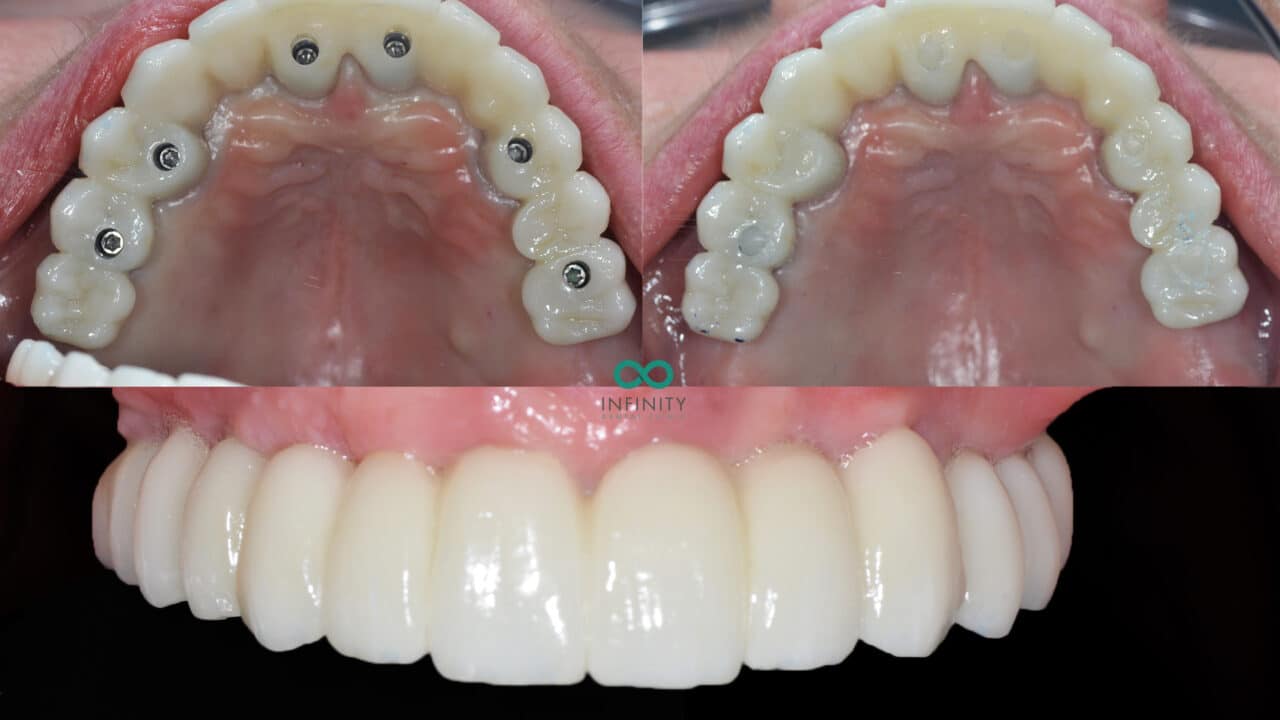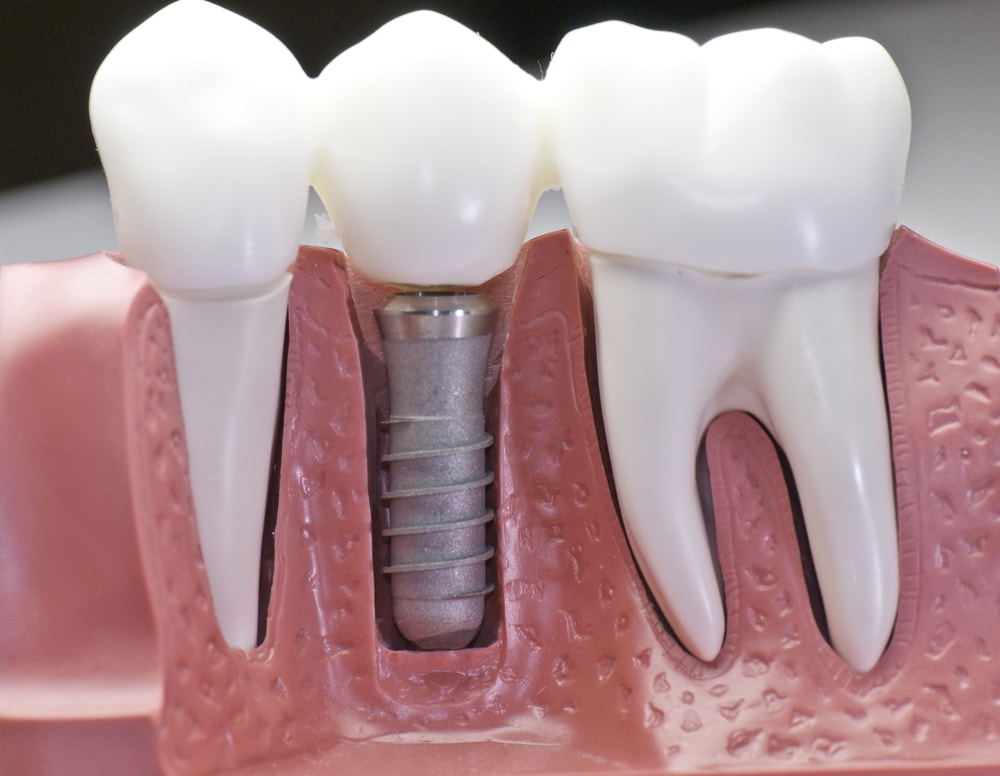The smart Trick of Dental Sense That Nobody is Talking About
The smart Trick of Dental Sense That Nobody is Talking About
Blog Article
Some Ideas on Dental Sense You Should Know
Table of ContentsThings about Dental SenseLittle Known Facts About Dental Sense.Indicators on Dental Sense You Should KnowDental Sense for Beginners
are clinical devices surgically dental implanted into the jaw to recover a person's capability to chew or their look. They supply support for man-made (fake) teeth, such as crowns, bridges, or dentures. When a tooth is lost due to injury or condition, a person can experience complications such as quick bone loss, faulty speech, or changes to eating patterns that result in pain.Oral implant systems include a dental implant body and oral implant abutment and may also consist of a joint fixation screw. Root canal procedure. The oral implant body is surgically placed in the jawbone in place of the tooth's origin. The dental implant abutment is generally affixed to the dental implant body by the abutment fixation screw and prolongs via periodontals right into the mouth to support the affixed synthetic teeth
(https://dentalsense1.creator-spring.com)Structure of The Oral Implant System picking dental implants, talk with your dental supplier concerning the potential advantages and dangers, and whether you are a prospect for the treatment. Things to consider: Your total health is a crucial consider figuring out whether you are a good candidate for oral implants, the length of time it will require to recover, and how much time the dental implant might remain in place.
Smoking might affect the recovery procedure and lower the long-lasting success of the dental implant. The recovery process for the dental implant body might take a number of months or longer, during which time you usually have a temporary joint in area of the tooth. the dental implant procedure: Carefully adhere to the dental hygiene directions provided to you by your dental copyright.
Not known Details About Dental Sense
Implant failure can lead to the requirement for one more surgery to repair or change the dental implant system. Recovers the ability to eat Restores aesthetic look Helps maintain the jawbone from shrinking due to bone loss Maintains the health and wellness of the bordering bone and gums Aids maintain nearby (neighboring) teeth stable Improves lifestyle Damages to bordering all-natural teeth throughout dental implant placement Injury to the surrounding tissues during surgical treatment, such as sinus perforation Injury during surgical treatment (for instance, crack of surrounding jawbone) Poor feature, such as really feeling like the teeth do not attack with each other typically An experience that the tooth is loosened or twisting in position arising from an abutment screw loosening Implant body failure (looseness of the implant body) as a result of systemic infection, which may be more probable in people with unrestrained diabetes due to local infection in bone and periodontals supporting the dental implant body as a result of postponed healing, which might be more probable in people that smoke Problem cleansing the gum tissues around the implant, leading to poor oral health Untreated gum illness Post-surgical pins and needles because of nerve impingement or damages Always notify wellness care companies and imaging technicians that you have dental implants prior to any type of magnetic vibration imaging (MRI) or x-ray treatments.
FDA is not familiar with any damaging events reported for MRI or x-ray treatments with oral implants. Oral implants systems are typically made of products that comply with worldwide consensus criteria of the International Organization for Standardization (ISO) or ASTM International. These standards have information of what makes a secure product.

An oral implant is a framework that changes a missing tooth. With screw-like gadgets, the surgeon inserts an implant into the jawbone, and it works as a support for a synthetic tooth, called a crown. A tool called an abutment attaches the fabricated tooth to the dental implant. The crown is tailor-made to fit the person's mouth and match the color of their teeth.
The Basic Principles Of Dental Sense
Some people are not eligible for oral implant surgery. It is for oral cosmetic surgeons to operate people with: intense illnessuncontrollable metabolic diseasebone or soft cells disease or infectionIf these concerns are dealt with, an individual can have the surgical treatment. In, oral surgeons avoid operating people with: If individuals with any of the above undergo oral implant surgical treatment, there is a greater threat of the implant stopping working.

Dental implant surgical treatment is an individualized procedure. Provide you time to heal. Attach the post and final crown, bridge or denture.
Next, your cosmetic surgeon will very carefully put the dental implant into your jaw. Finally, your surgeon will certainly rearrange your gum tissues and shut the incision with stitches. If your dental implant is near the front of your mouth, your dental expert will make a momentary tooth for you to use until you heal. That way, you won't have a gap in your smile while you recoup.
Fascination About Dental Sense
During the recovery stage, your jawbone needs to fuse to the dental implant. This process can take anywhere from three to 9 months.
Once your dental implant heals, your dental practitioner can connect the abutment (little connector message) and your last reconstruction (crown, bridge or denture). This generally takes regarding one hour to complete and may call for a second small surgical procedure. You should not feel any type of pain during your oral implant procedure Recommended Reading since your provider will certainly make use of medication to numb your gums.
Report this page